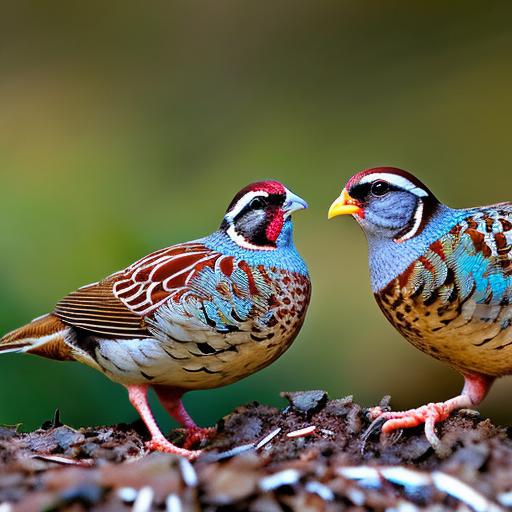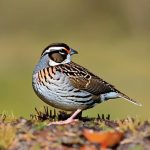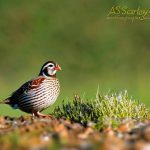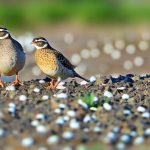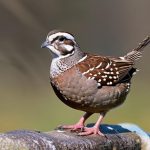When it comes to setting up an aviary for your quail, choosing the right location is crucial for their well-being and safety. The ideal location for an aviary should be away from any potential sources of disturbance, such as loud noises or heavy foot traffic. This will help to minimize stress for the quail and allow them to thrive in a peaceful environment. Additionally, the location should have good drainage to prevent waterlogging, as quail are susceptible to respiratory issues if kept in damp conditions.
Furthermore, the aviary should be situated in an area that receives a good amount of sunlight, as natural light is essential for the health and well-being of the quail. Sunlight helps to regulate their internal clock and promotes vitamin D production, which is important for their overall health. However, it’s also important to provide areas of shade within the aviary to allow the quail to escape from direct sunlight when needed. Lastly, the location should be easily accessible for maintenance and monitoring, making it easier for you to care for your quail on a daily basis.
In conclusion, choosing the right location for your quail aviary is essential for their overall well-being. It should be a peaceful and quiet area with good drainage, ample sunlight, and easy accessibility for maintenance. Taking these factors into consideration will help ensure that your quail are happy and healthy in their new home.
Key Takeaways
- Choose a location for your aviary that is away from potential predators and provides adequate sunlight and shade for your quail.
- Build a secure enclosure with predator-proof fencing and consider adding a roof to protect your quail from aerial predators.
- Provide shelter and nesting areas within the aviary to ensure the comfort and safety of your quail.
- Create a balanced diet for your quail that includes a mix of grains, seeds, and greens to meet their nutritional needs.
- Ensure proper hydration by providing clean water sources and regularly monitoring water quality for your quail.
- Maintain cleanliness and hygiene in the aviary by regularly cleaning and disinfecting the enclosure and nesting areas.
- Monitor the health and well-being of your quail by observing their behavior, checking for signs of illness, and seeking veterinary care when necessary.
Building a Secure and Predator-Proof Enclosure
When building an aviary for your quail, it’s crucial to ensure that the enclosure is secure and predator-proof to protect your birds from potential harm. This means using sturdy materials such as wire mesh or hardware cloth to construct the walls and roof of the aviary, as these materials are strong enough to withstand attempts by predators to break in. Additionally, it’s important to bury the wire mesh or hardware cloth at least 12 inches into the ground to prevent predators from digging underneath the enclosure.
Furthermore, it’s essential to install locks or latches on all doors and access points to prevent predators from gaining entry. Regularly inspecting the enclosure for any signs of wear or damage is also important to ensure that it remains secure over time. Lastly, consider adding additional security measures such as motion-activated lights or alarms to deter potential predators from approaching the aviary.
In conclusion, building a secure and predator-proof enclosure is essential for the safety and well-being of your quail. Using sturdy materials, burying wire mesh or hardware cloth, installing locks or latches, and adding extra security measures will help protect your birds from potential harm. By taking these precautions, you can provide a safe and secure environment for your quail to thrive in.
Providing Adequate Shelter and Nesting Areas
In addition to a secure enclosure, providing adequate shelter and nesting areas is essential for the comfort and well-being of your quail. Quail are ground-dwelling birds that prefer to nest and roost in low-lying areas, so it’s important to provide them with suitable shelters such as wooden boxes or shelters made from natural materials like straw or hay. These shelters should be placed in quiet and secluded areas within the aviary to provide the quail with a sense of security and privacy.
Furthermore, it’s important to provide nesting areas where the quail can lay their eggs and raise their young. This can be achieved by placing nesting boxes or trays filled with suitable nesting materials such as straw or shredded paper in the aviary. These nesting areas should be located in a quiet and undisturbed part of the enclosure to encourage the quail to use them for breeding purposes.
Lastly, it’s important to regularly clean and maintain the shelters and nesting areas to ensure that they remain clean and free from parasites or disease. By providing adequate shelter and nesting areas, you can create a comfortable and secure environment for your quail to thrive in.
Creating a Balanced Diet for Your Quail
A balanced diet is essential for the health and well-being of your quail. Quail are omnivorous birds that require a diet rich in protein, vitamins, and minerals to thrive. A good quality commercial quail feed can form the basis of their diet, providing essential nutrients such as protein, calcium, and vitamins. Additionally, supplementing their diet with fresh fruits and vegetables can provide additional vitamins and minerals that are essential for their overall health.
Furthermore, offering treats such as mealworms, crickets, or small pieces of fruit can provide enrichment and mental stimulation for your quail. However, it’s important to offer treats in moderation to prevent overfeeding and ensure that they receive a balanced diet. Additionally, providing access to grit or small stones is important for quail as it helps them grind their food in their gizzards, aiding in digestion.
Lastly, it’s important to provide access to clean water at all times, as dehydration can quickly become a serious issue for quail. By creating a balanced diet that includes commercial feed, fresh fruits and vegetables, treats, and access to grit and water, you can ensure that your quail receive all the essential nutrients they need to thrive.
Ensuring Proper Hydration and Water Sources
Proper hydration is crucial for the health and well-being of your quail. Quail require access to clean water at all times to stay hydrated and maintain their overall health. It’s important to provide water sources that are easily accessible within the aviary, ensuring that all birds have equal opportunity to drink.
Additionally, it’s important to regularly clean and refill water containers to prevent the build-up of algae or bacteria that could potentially harm your quail. Providing multiple water sources within the aviary can also help prevent overcrowding at one particular location, ensuring that all birds have access to water when needed.
Furthermore, during hot weather or in warmer climates, it’s important to take extra precautions to prevent heat stress in your quail. This can be achieved by providing shaded areas within the aviary where the birds can escape from direct sunlight, as well as misting systems or shallow water baths where they can cool off if needed.
In conclusion, ensuring proper hydration and water sources is essential for the health and well-being of your quail. Providing clean water at all times, regularly cleaning and refilling water containers, offering multiple water sources within the aviary, and taking precautions during hot weather will help ensure that your quail stay hydrated and healthy.
Maintaining Cleanliness and Hygiene in the Aviary
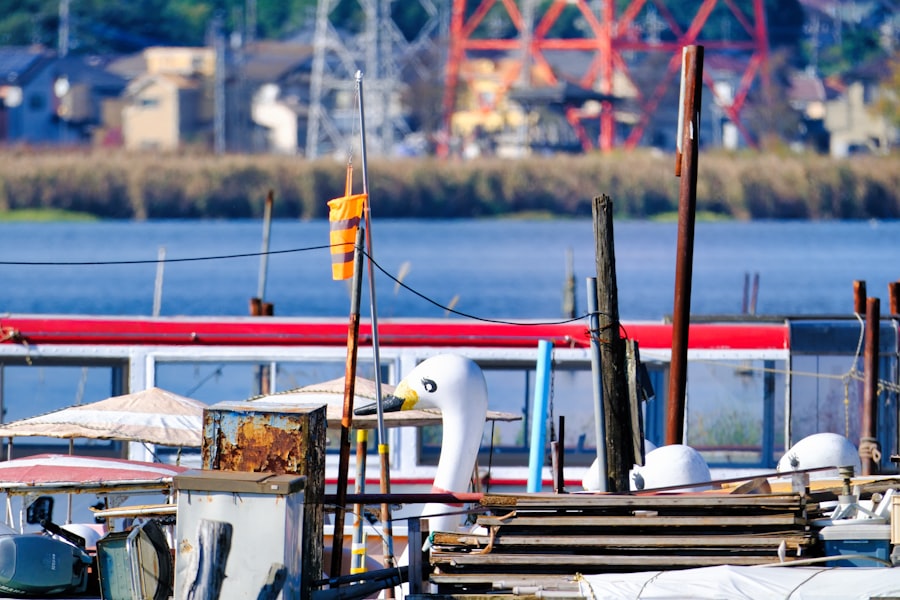
Maintaining cleanliness and hygiene in the aviary is essential for preventing disease and promoting the overall health of your quail. Regularly cleaning the enclosure by removing droppings, old bedding, and any uneaten food will help prevent the build-up of bacteria and parasites that could potentially harm your birds. Additionally, regularly disinfecting shelters, nesting areas, feeders, and water containers will help prevent the spread of disease within the aviary.
Furthermore, it’s important to regularly inspect the aviary for any signs of wear or damage that could compromise its security or hygiene. Repairing any damaged areas promptly will help maintain a safe and clean environment for your quail. Additionally, providing dust baths filled with fine sand or diatomaceous earth can help keep your quail clean and free from parasites such as mites or lice.
Lastly, practicing good biosecurity measures such as quarantining new birds before introducing them to your existing flock can help prevent the spread of disease within the aviary. By maintaining cleanliness and hygiene in the aviary through regular cleaning, disinfection, inspection, and biosecurity measures, you can help ensure that your quail remain healthy and disease-free.
Monitoring the Health and Well-being of Your Quail
Monitoring the health and well-being of your quail is essential for early detection of any potential issues or illnesses. Regularly observing your birds for any signs of abnormal behavior or symptoms such as lethargy, loss of appetite, or changes in droppings can help you identify any health issues early on. Additionally, weighing your birds regularly can help you track their growth and detect any sudden weight loss that could indicate an underlying health problem.
Furthermore, it’s important to handle your birds regularly to check for any signs of injury or illness such as wounds, swelling, or abnormal lumps. Additionally, monitoring egg production in female quail can help you identify any potential reproductive issues or egg-related problems.
Lastly, consulting with a veterinarian who has experience with poultry can provide valuable guidance on monitoring the health of your quail and addressing any potential health issues that may arise. By regularly monitoring the health and well-being of your quail through observation, handling, weighing, egg production tracking, and veterinary consultation when needed, you can help ensure that your birds remain healthy and thriving in their aviary.
In conclusion, monitoring the health and well-being of your quail is essential for early detection of any potential issues or illnesses. Regular observation, handling, weighing, egg production tracking, and veterinary consultation when needed will help ensure that your birds remain healthy and thriving in their aviary. By taking these measures, you can provide a safe and nurturing environment for your quail to thrive in.
If you’re considering keeping quail in an outdoor aviary, you may also be interested in learning about the ideal number of chickens for a family of four. Understanding the right quantity of chickens can help ensure a sustainable and sufficient egg supply. Check out Poultry Wizard’s article on how many chickens do you need for a family of 4 to gain valuable insights into this aspect of poultry keeping.
FAQs
What is an outdoor aviary?
An outdoor aviary is a large enclosure, usually made of wire or mesh, that is used to house birds such as quail. It provides a natural environment for the birds and allows them to fly and move around freely.
What are the benefits of keeping quail in an outdoor aviary?
Keeping quail in an outdoor aviary allows them to exhibit natural behaviors such as dust bathing, foraging, and flying. It also provides them with access to natural sunlight and fresh air, which are essential for their health and well-being.
How big should an outdoor aviary be for quail?
The size of the outdoor aviary for quail will depend on the number of birds being housed. As a general guideline, each quail should have at least 1 square foot of space in the aviary. It’s important to provide enough space for the birds to move around and exercise.
What should be included in an outdoor aviary for quail?
An outdoor aviary for quail should include areas for dust bathing, perches for roosting, hiding spots, and areas for foraging. It should also have a sheltered area to protect the birds from the elements, as well as access to fresh water and a balanced diet of quail feed.
How can I predator-proof an outdoor aviary for quail?
To predator-proof an outdoor aviary for quail, it’s important to use sturdy wire or mesh that is buried into the ground to prevent digging predators. Additionally, make sure to secure all doors and openings with locks or clips, and consider adding a roof or netting to prevent aerial predators from accessing the aviary. Regularly inspect the aviary for any signs of damage or potential entry points for predators.
Meet Walter, the feathered-friend fanatic of Florida! Nestled in the sunshine state, Walter struts through life with his feathered companions, clucking his way to happiness. With a coop that’s fancier than a five-star hotel, he’s the Don Juan of the chicken world. When he’s not teaching his hens to do the cha-cha, you’ll find him in a heated debate with his prized rooster, Sir Clucks-a-Lot. Walter’s poultry passion is no yolk; he’s the sunny-side-up guy you never knew you needed in your flock of friends!

